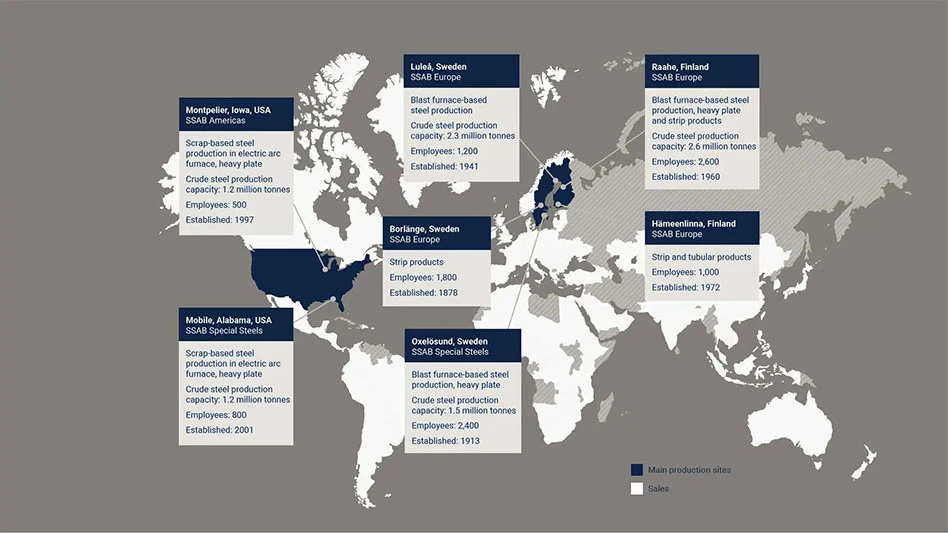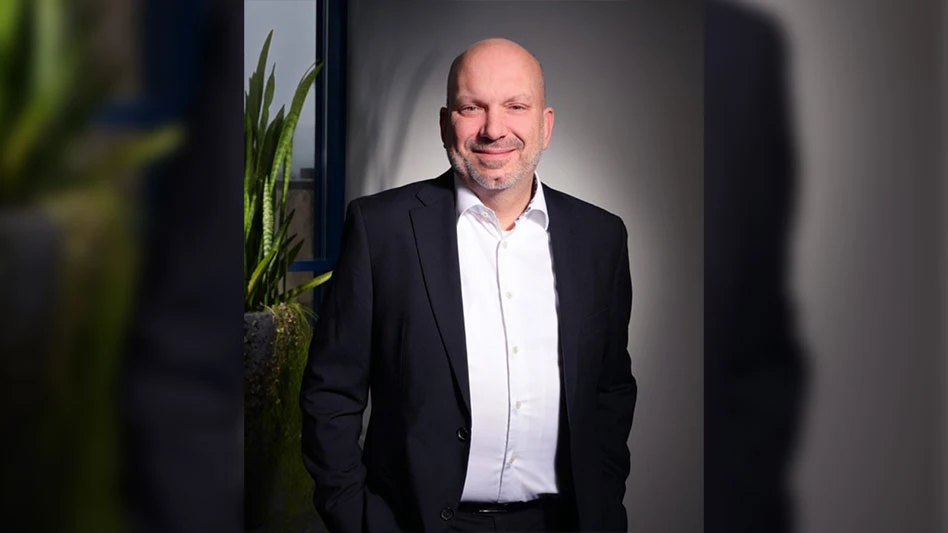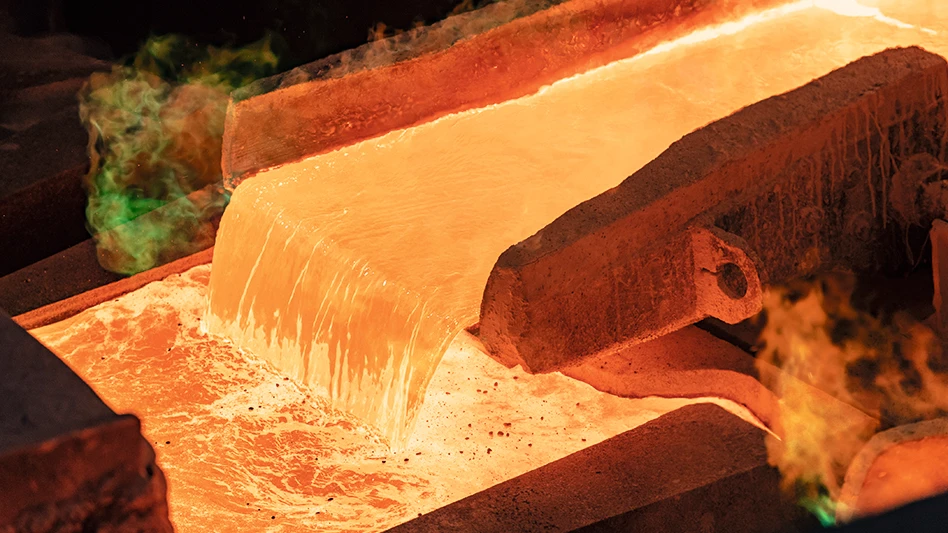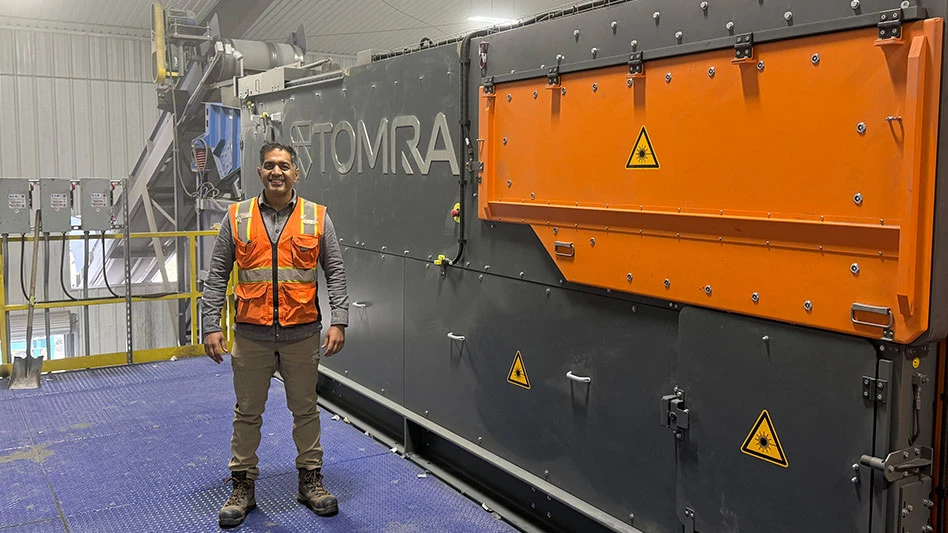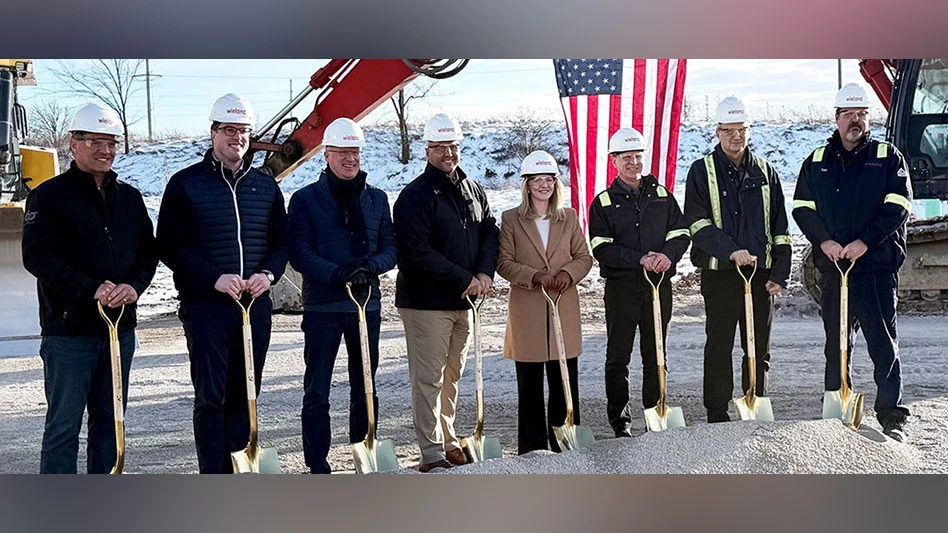
Photo courtesy of ArcelorMittal
Several global steelmakers have recorded profits in the first quarter of 2025, though Pittsburgh-based United States Steel Corp. has reported red ink as it awaits final word on its proposed acquisition.
U.S. Steel reports a net loss of $116 million, or 52 cents per diluted share, in this year’s first quarter, citing seasonally low results driven by annual iron mining logistics constraints in its North American Flat-Rolled segment as well as lagging spot prices.
CEO David B. Burritt referred to U.S. Steel's Big River electric arc furnace (EAF) campus in Osceola, Arkansas, as “a showcase of American innovation in steelmaking,” and says its additional Big River 2 (BR2) production line continues ramping toward full capacity.
After accounting for $55 million in ramp-up impact at BR2, U.S. Steel's Mini Mill segment earnings before interest, taxes, depreciation and amortization (EBITDA) margins reached 10 percent.
U.S. Steel says its merger with Japan-based Nippon Steel is a process that has the two companies “moving together as the best steelmaker with world-leading capabilities.” As of May 1, however, that merger remains in limbo awaiting final approval from the U.S. government.
Luxembourg-based ArcelorMittal, which operates BOF and EAF mills as well as iron and coal mining properties globally, returned to profitability in this year’s first quarter after losing $390 million in the final three months of 2024.
“From a financial perspective, it was another quarter of consistent delivery and robust margins, particularly given the geopolitical challenges, with EBITDA of $116 per metric ton,” ArcelorMittal CEO Aditya Mittal says.
“Looking ahead, a measure of caution about the short-term outlook is appropriate. Heightened uncertainty around the terms of global trade is hurting business confidence and risks causing further economic disruption if not quickly resolved. It is encouraging, however, that around the world, governments are committed to supporting their domestic manufacturing industries.
“In the U.S., Section 232 tariffs are supporting higher prices and spreads, and in Europe the Steel and Metals Action Plan is a much needed and important signal that Europe will take action to support strategically important industries like steel from unfair competition.”
Fellow Luxembourg-based steelmaker Ternium S.A. has reported net income of $188 million in this year’s first quarter, a figure 57 percent lower compared with the prior quarter and 71 percent lower year on year.
Ternium, which operates BOF and EAF mills in Mexico and Latin America, says its operating profit figure increased compared with the final quarter of 2024 but its net income figure was reduced by a provision adjustment charge of $45 million in connection with the ongoing litigation related to an acquisition from several years ago.
As have other steelmakers, Ternium refers to uncertainty around evolving U.S. trade policies as a source of concern.
“In Mexico, the company anticipates volumes in the second quarter to remain subdued due to the unresolved tariff issue, which impacts operational and investment decisions in the steel value chain," Ternium says.
Brazil-based Gerdau, which operates recycled-content EAF mills and scrap recycling facilities in the U.S. and Canada, has reported a 13.8 percent net income increase in this year’s first quarter compared with the prior quarter. Its net income was down by 39 percent, however, compared with the first quarter of last year.
The company says its profitable first quarter of 2025 was primarily driven by enhanced performance of its North American operations, which mitigated the decline in Brazil’s operating results.
“It is imperative to reiterate the significance of the company’s geographical diversification, particularly during periods of greater market volatility," the company says.
“[Our] North America Segment (which as of Q1 2025 includes the special steel operation in the U.S.) ended the quarter with shipment volumes 14.7 percent higher than in Q4 2024. This growth is partly due to the typical seasonal upturn, but also to the reaction of customers to changes in US trade policy.”
The company assigns 49 percent of its first quarter EBITDA, about $312 million, to its North American operations.
Gerdau’s North American EAF profits so far this year join those earlier reported by Charlotte, North Carolina-based Nucor Corp. and Fort Wayne, Indiana-based Steel Dynamics Inc., two of the other largest EAF steelmakers in the U.S.
Swedish steelmaker SSAB says its North American operations reduced its profitability in the first quarter of 2025 compared with the year before.
SSAB, which makes carbon steel and stainless steel at BOF and EAF facilities, says its first quarter 2025 results reflected weak market conditions in general and the decrease compared with last year was mainly related to lower prices in North America.
The company, which operates a recycled-content EAF carbon steel mill in Iowa, says it remains committed to investing in its SSAB Special Steels’ facility in Mobile, Alabama, to increase the capacity of the most advanced products.
In this year’s first quarter, SSAB’s net income globally fell by 56 percent compared with its early 2024 results.
"Market prices in North America recovered compared to the fourth quarter last year, which will gradually have a positive effect on SSAB Americas’ result the next quarter," the company says.
Latest from Recycling Today
- Eriez expands European sales network
- Gränges increases sales volume in 2025
- Aduro selects Netherlands as site for industrial scale-up facility
- Nasco-Op declares dividend
- Cyclic Materials announces plans for South Carolina campus
- WM reports revenue, earnings growth in Q4 and full-year 2025
- Solarcycle’s Cedartown, Georgia, recycling facility opens
- Stadler equips Spanish MRF
